Loom
|
Loom |
TRIVIA
- Technical specs according to the label: CD-ROM IBM® PC & Compatibles Requirements. IBM® AT® (286 or Higher), CD-ROM Drive, Driver Software, CD-ROM Extensions 2.1 or Higher, MS-DOS or PC-DOS 3.1 or Higher, 640K. Supports VGA. Contains Full Voice Stereo Soundtrack.
 |
|
| IBM DOS v2 (“Talkie”) |
-
My box is a bit of an oddball. While it features the IBM DOS v2 spec label and the v2 version released in 1992 inside (on CD-ROM and not floppies), it clearly is the original box from 1990 that came with the game’s v1 floppy version (Big Box vs. sleeve-box).
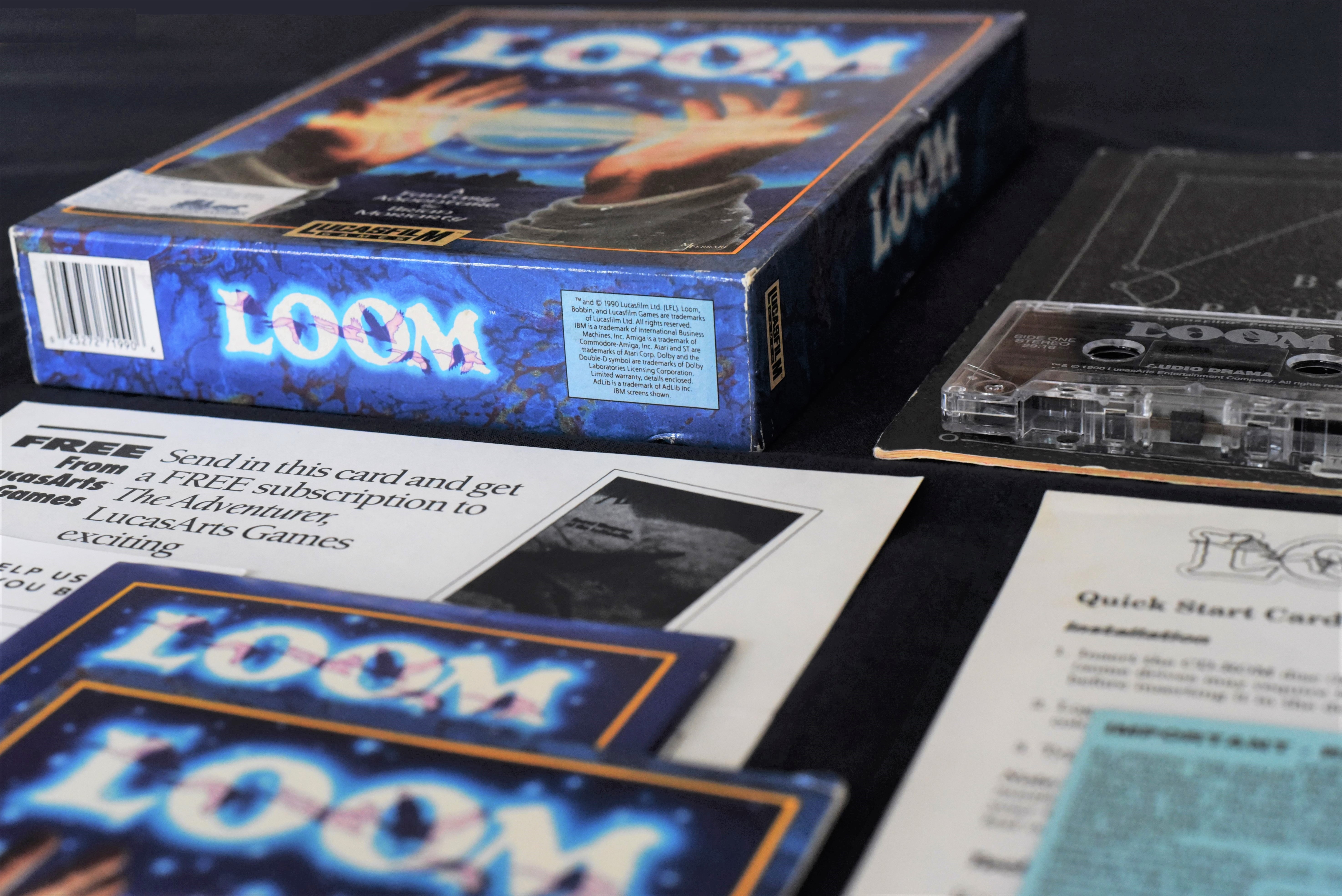 |
 |
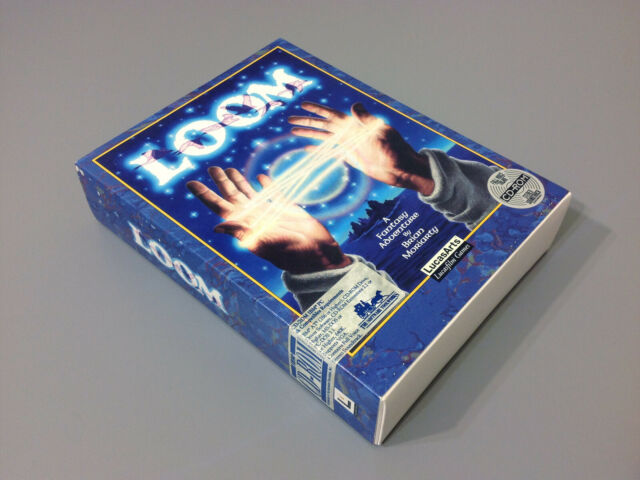 |
|||
| “Relabeled” box (my box) | Floppy Big Box (1990) | “Talkie” sleeve-box (1992) |
- Further differences between the original box (mine) and Loom's sleeve-box: the Toolworks label (see below), the Lucasfilm Games/LucasArts logo, slightly different text and additional text on the back.
- Besides the IBM DOS v1 floppy (EGA) and v2 CD-ROM (VGA) versions, essentially the same box also came out for Amiga, Macintosh, and Atari ST (with different spec labels).
- The FM Towns version has a completely different cover art:
 |
|
| Japanese cover art1 (1991) |
-
The “talkie” version was not published by Lucasfilm Games but by The Software Toolworks.
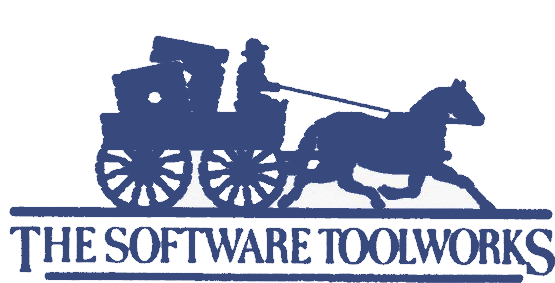 |
|
| Toolworks logo in 1992 |
-
The creator of the front cover art is Mark Ferrari who also did the in-game backgrounds and contributed to the animation of the game (EGA version).2 In the bottom right corner his name can be seen.
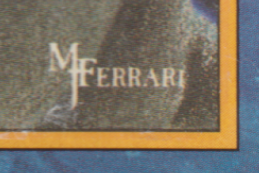 |
|
| Ferrari's signature |
-
The title Loom is obviously referring to the Guild of Weavers but also and more specifically to their island (named Loom) and the Great Loom in the Sanctuary. In addition, the title is “looming” over the island.
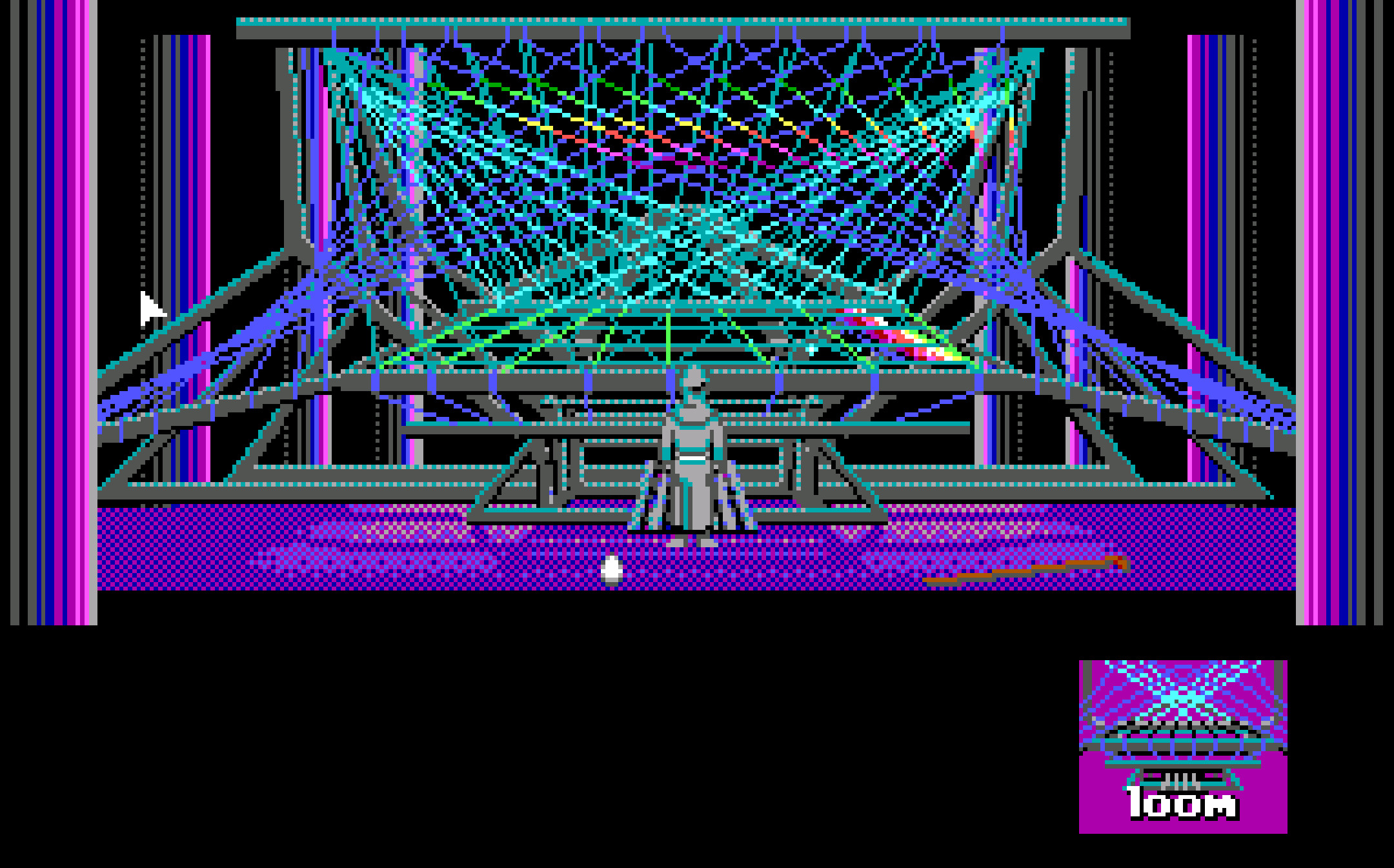 |
|
| The Great Loom, the symbol of the Guild of Weavers |
-
The front cover, as mysterious as it is, shows six swans (probably transformed members of Bobbin’s guild, maybe some of the Elders), a messenger nymph, the island Loom, and two hands (most likely Bobbin’s even though he wears gloves normally) weaving a magic thread.
-
The main hill of the island resembles the main hill of an island that is part of another game of this series. Both heroes start their journey on these hilltops respectively.
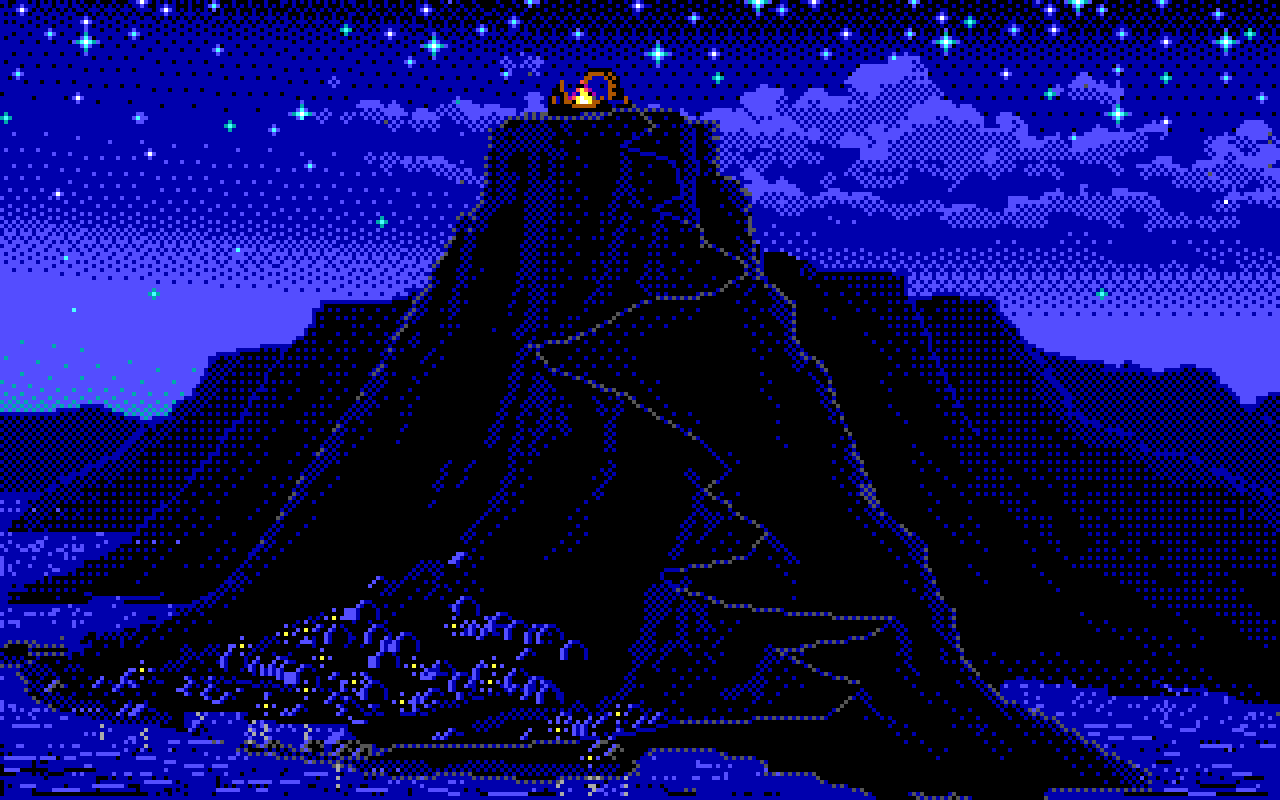 |
|
| The Island of Mêlée3 |
- The two hands weaving the glowing thread can be interpreted as a stand-in for “draft-spinning”, the central theme of the game.
- The awesome back cover art was done by Dugald Stermer who died in 2011.4
- The medieval fantasy elements on the back of the box complement the understanding of what the game is about. The old-style border is full of imagery found in the game:
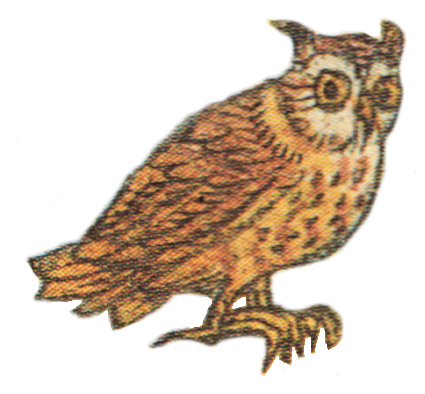 |
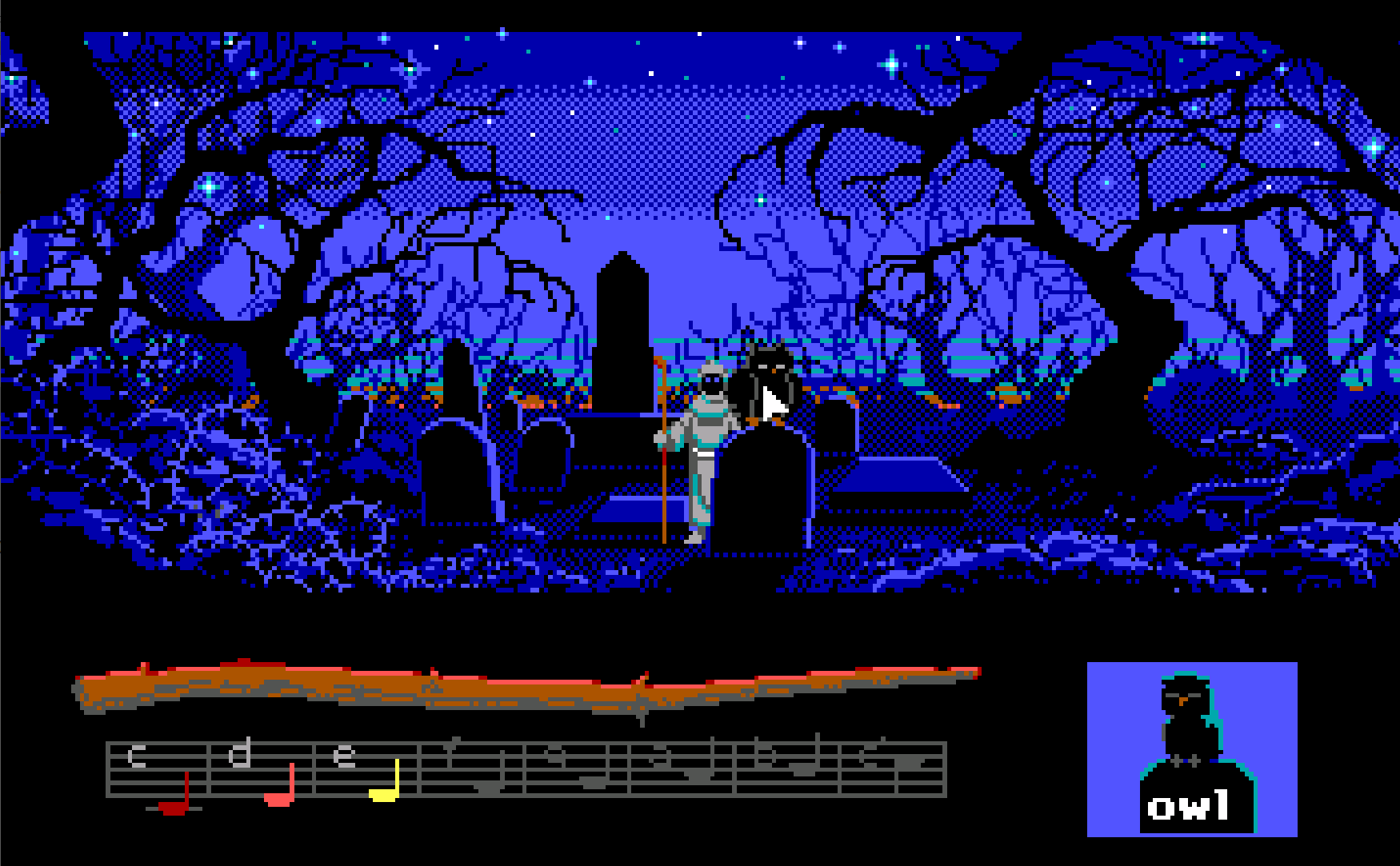 |
||||
| Owl | Owl in the graveyard | ||||
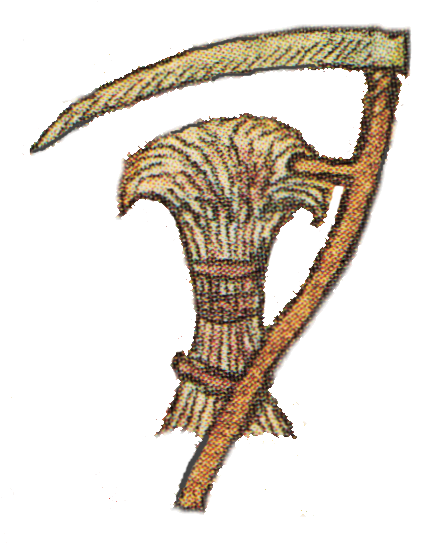 |
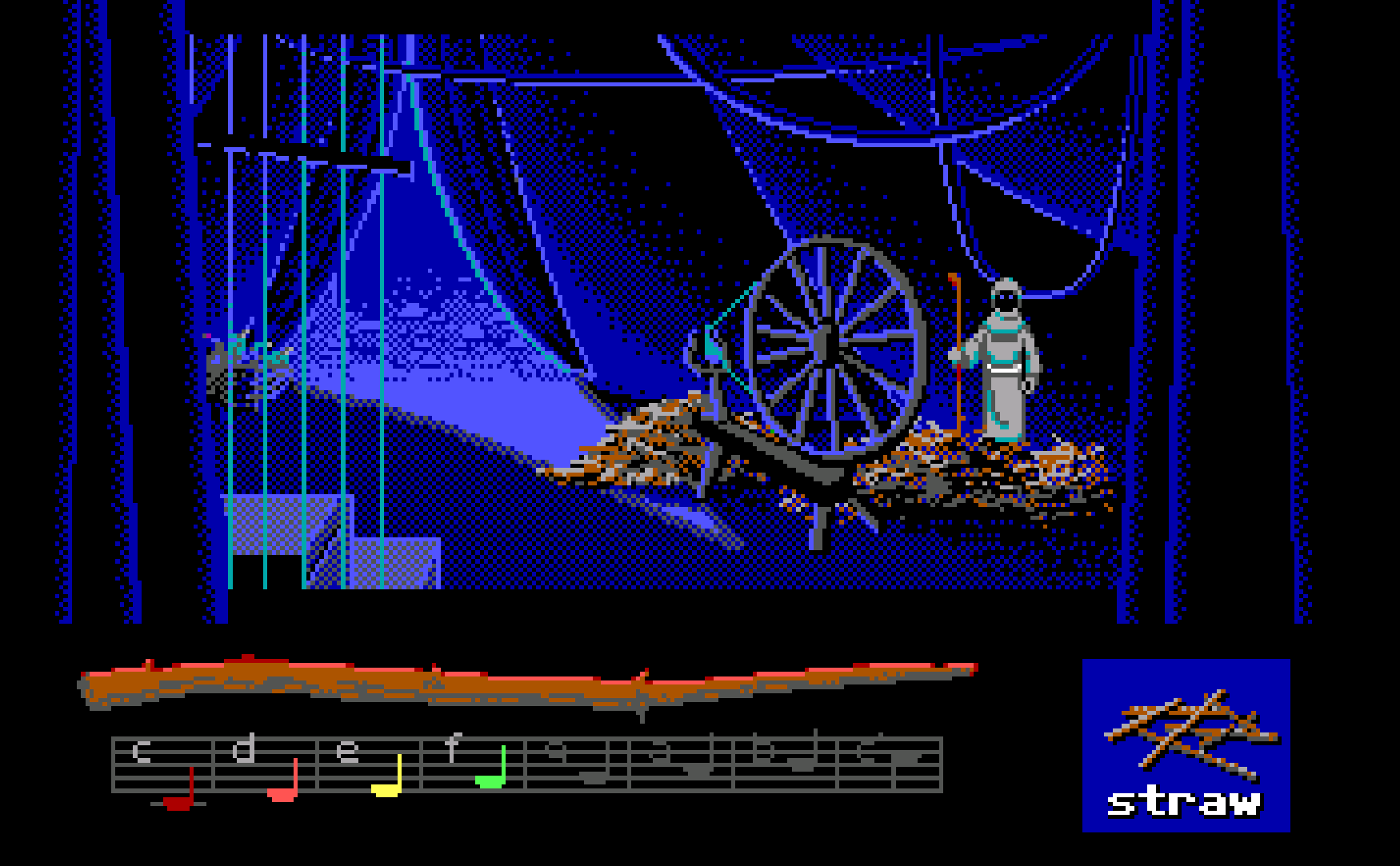 |
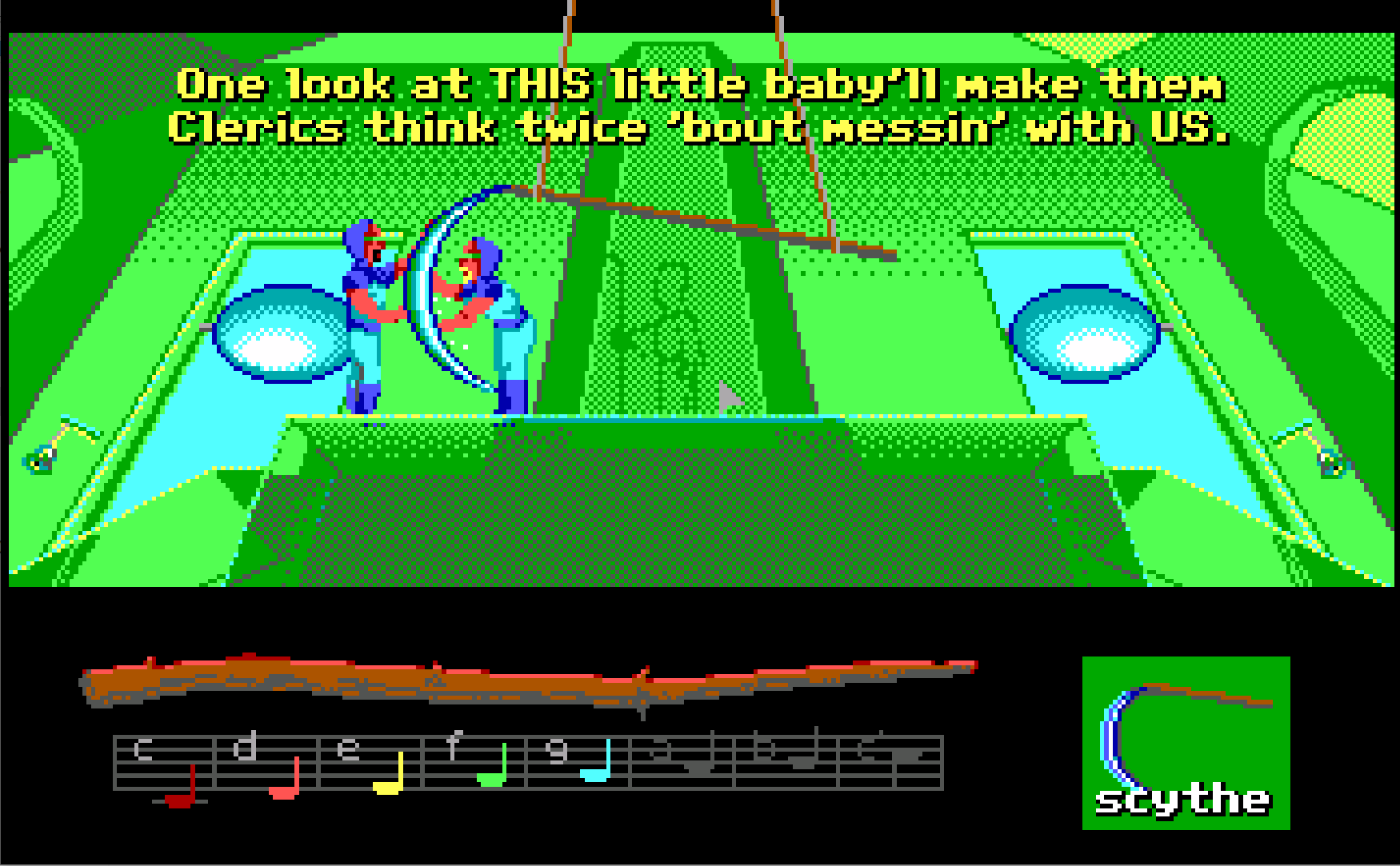 |
|||
| Pile of straw and scythe |
Straw-to-gold draft | Big scythe in Crystalgard | |||
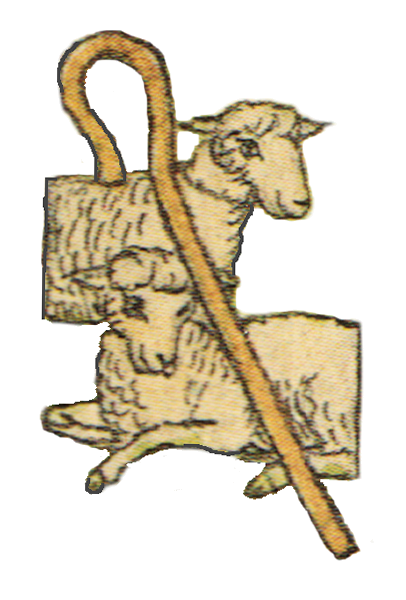 |
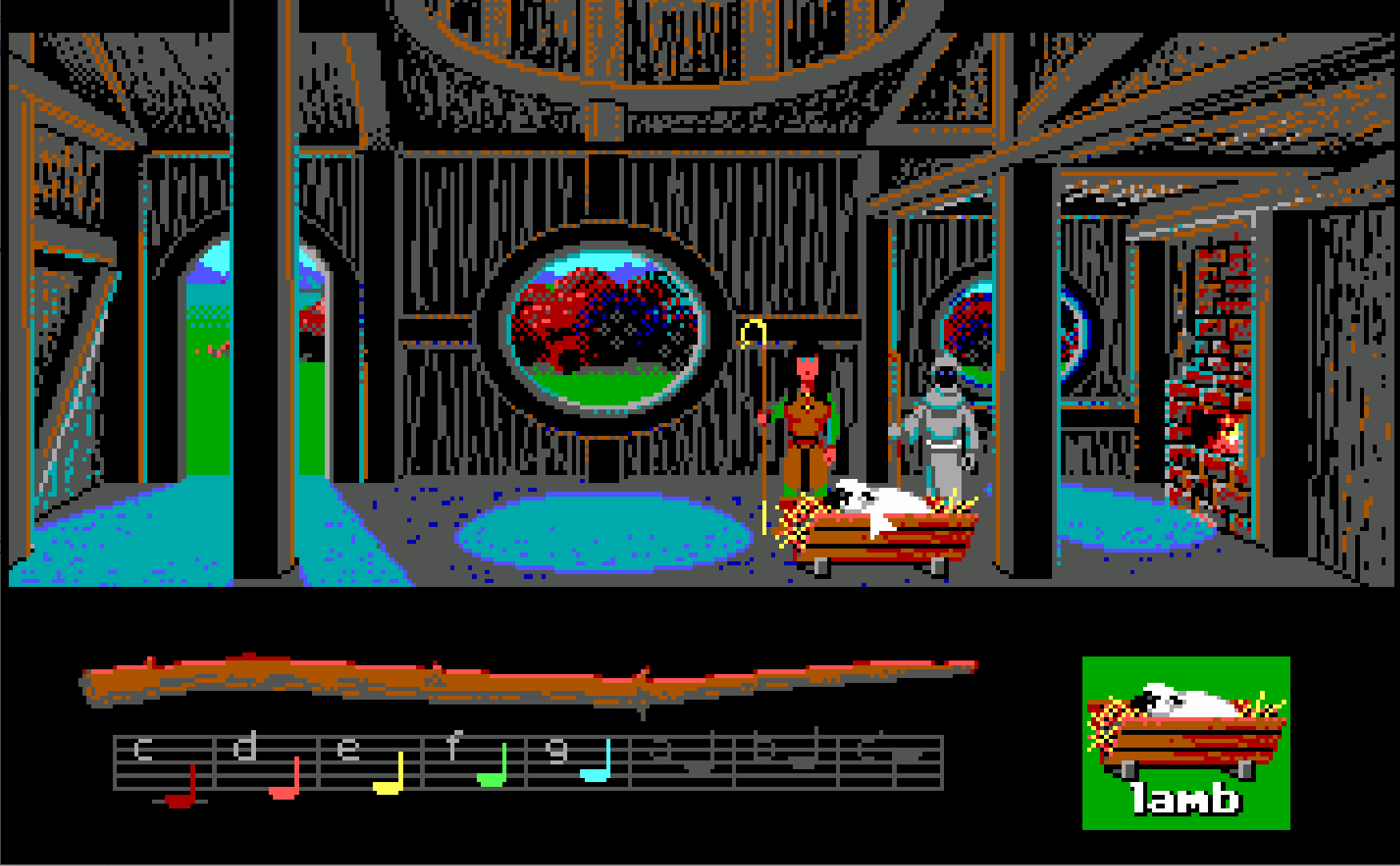 |
||||
| Sheep and shepherd's crook | Bobbin at Fleece’s | ||||
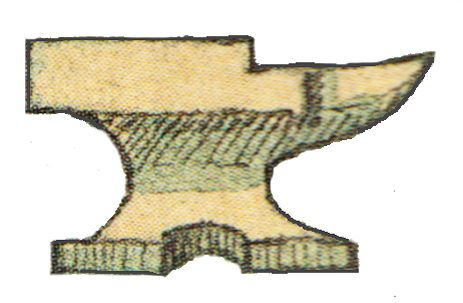 |
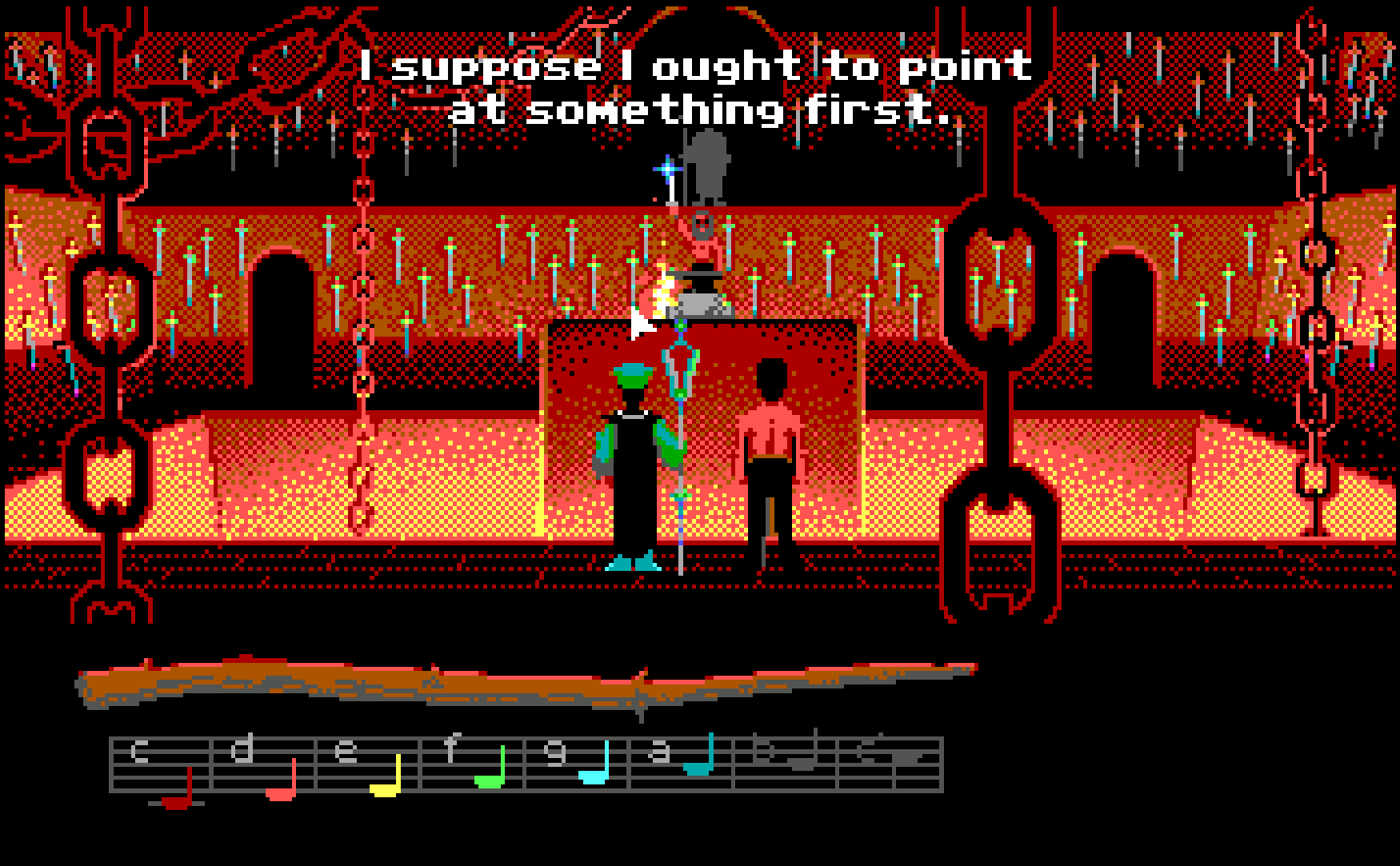 |
||||
| Anvil | At the Guild of Blacksmiths | ||||
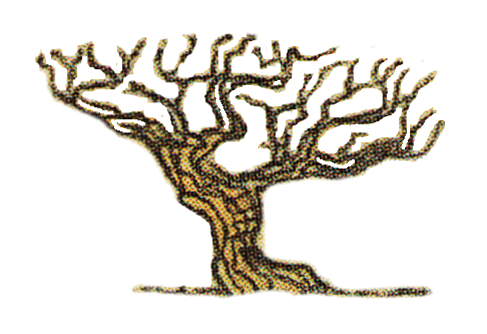 |
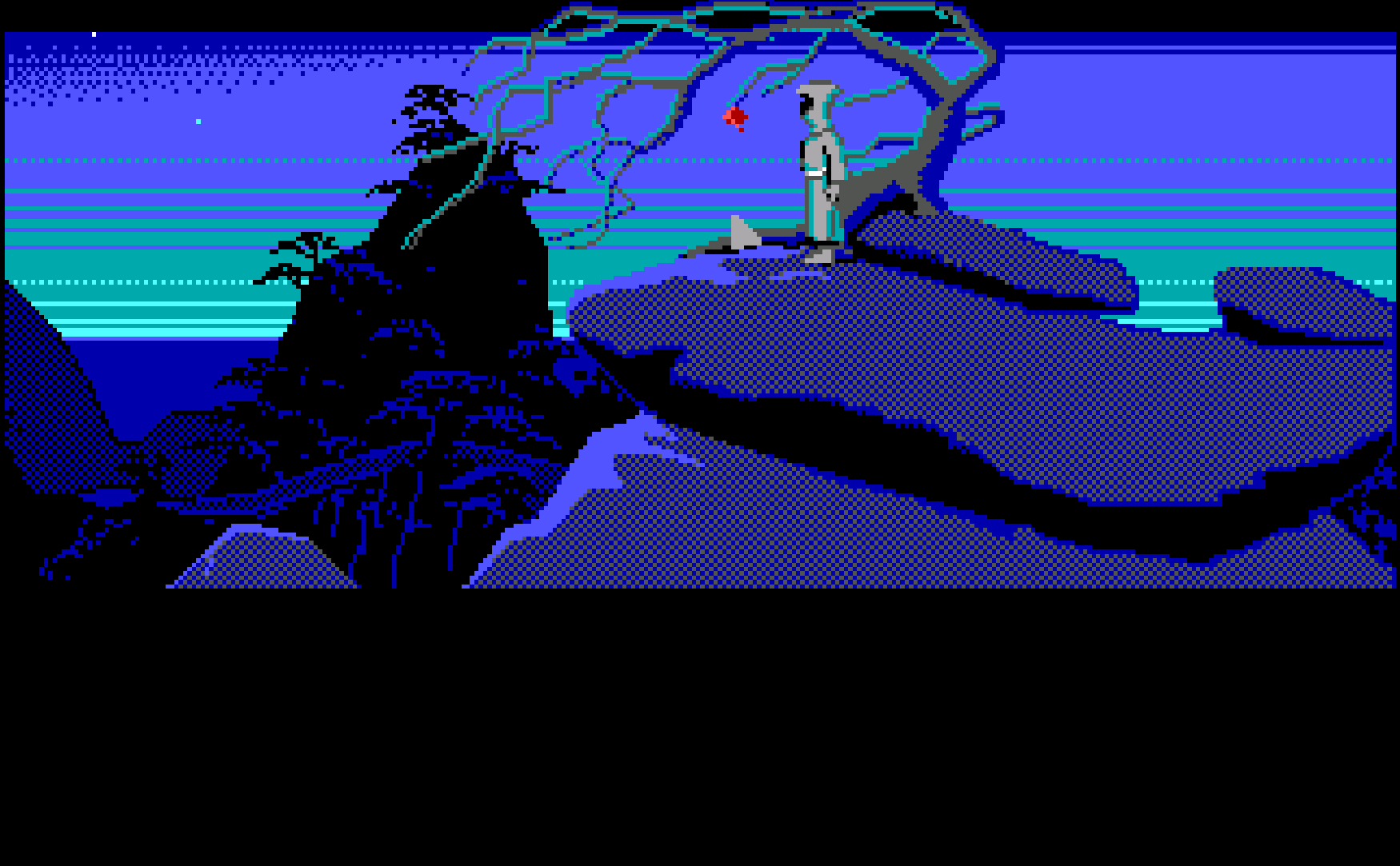 |
||||
| Tree | The iconic opening scene | ||||
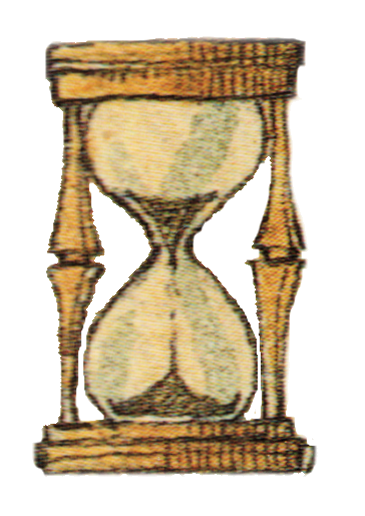 |
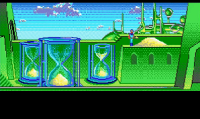 |
||||
| Hourglass | Deleted scene from Crystalgard5 | ||||
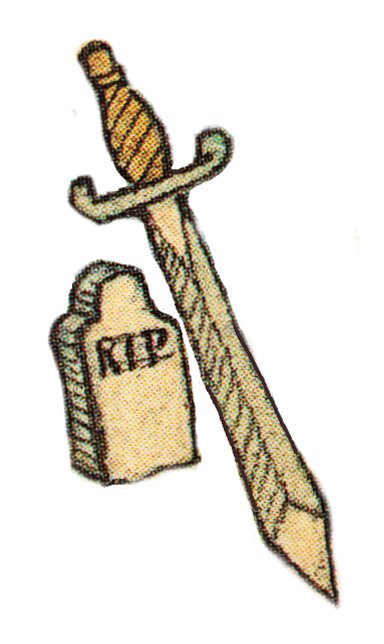 |
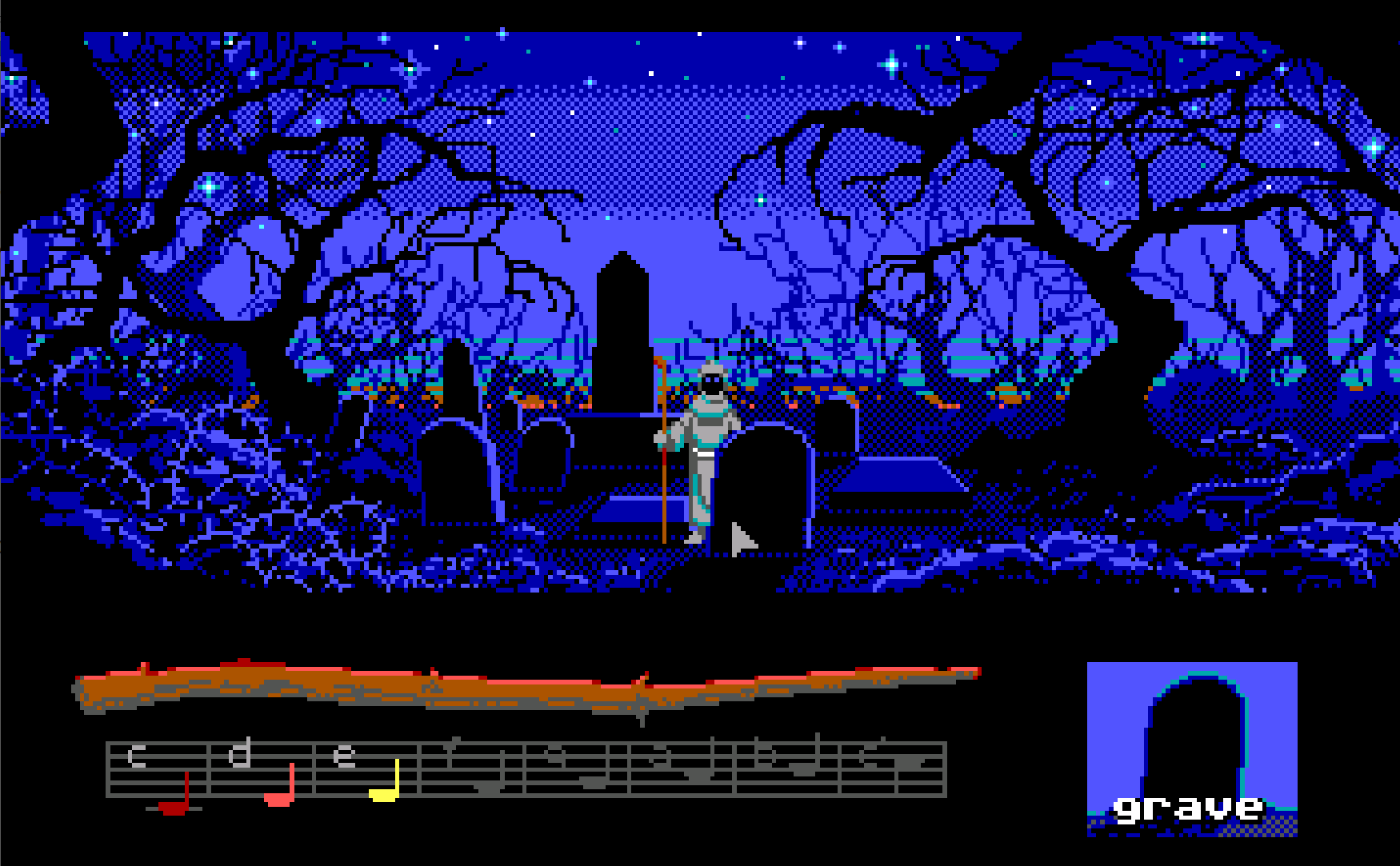 |
 |
|||
| Tombstone and sword | Bobbin in the graveyard | Bobbin at the Guild of Blacksmiths | |||
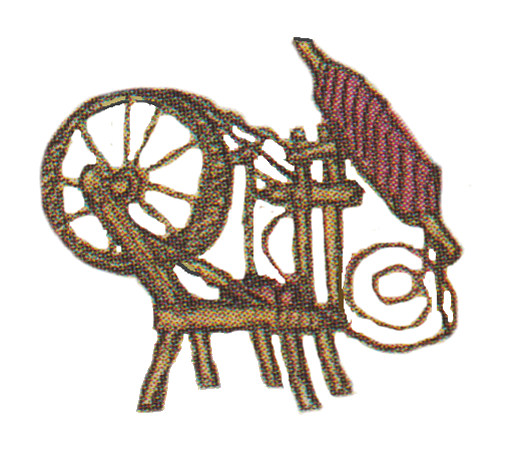 |
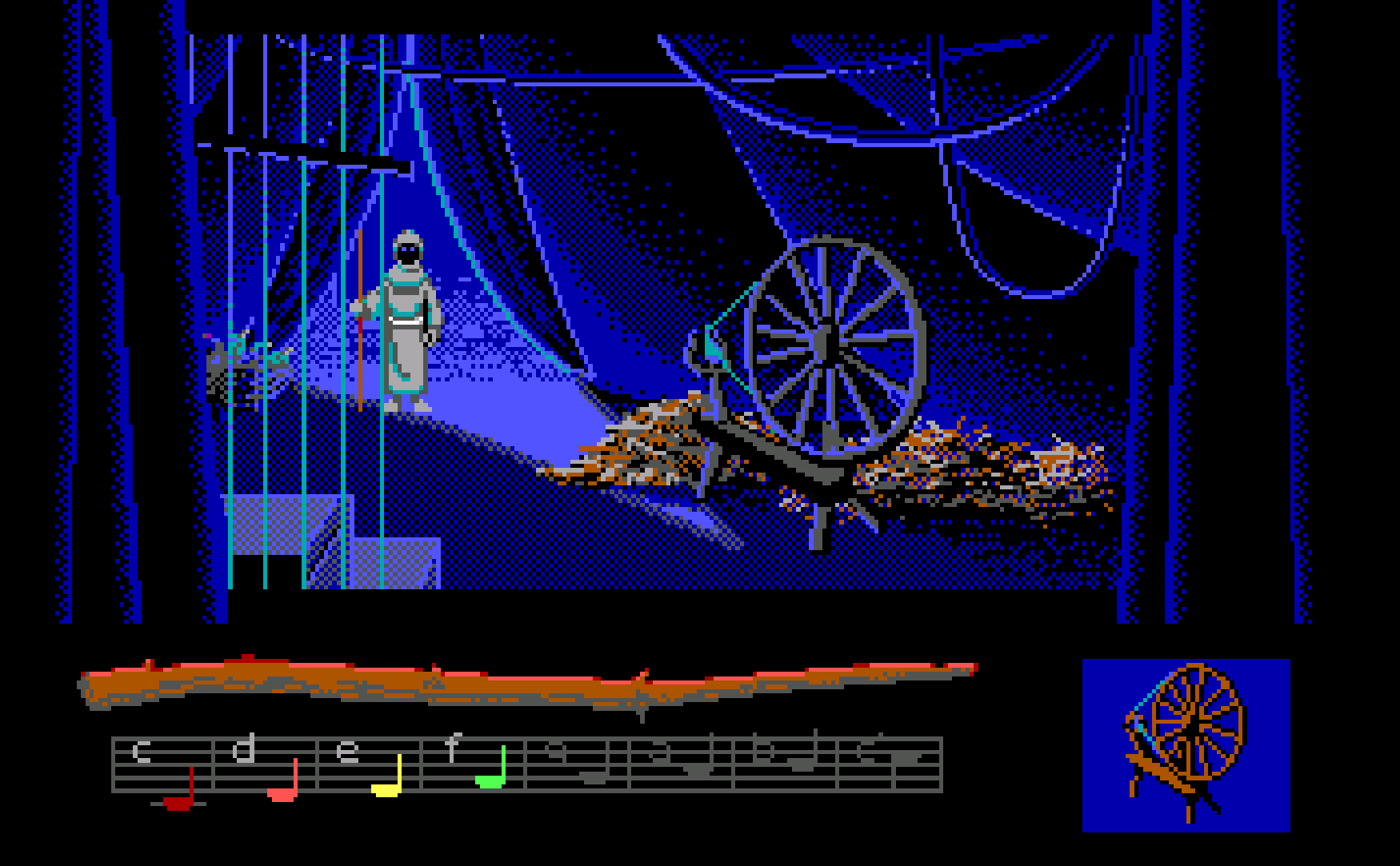 |
||||
| Spinning wheel | In the village | ||||
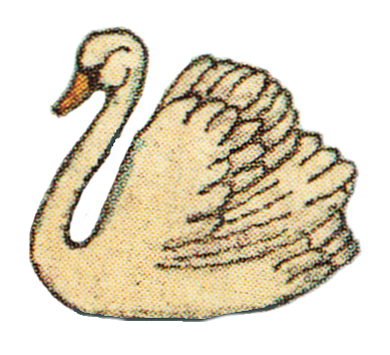 |
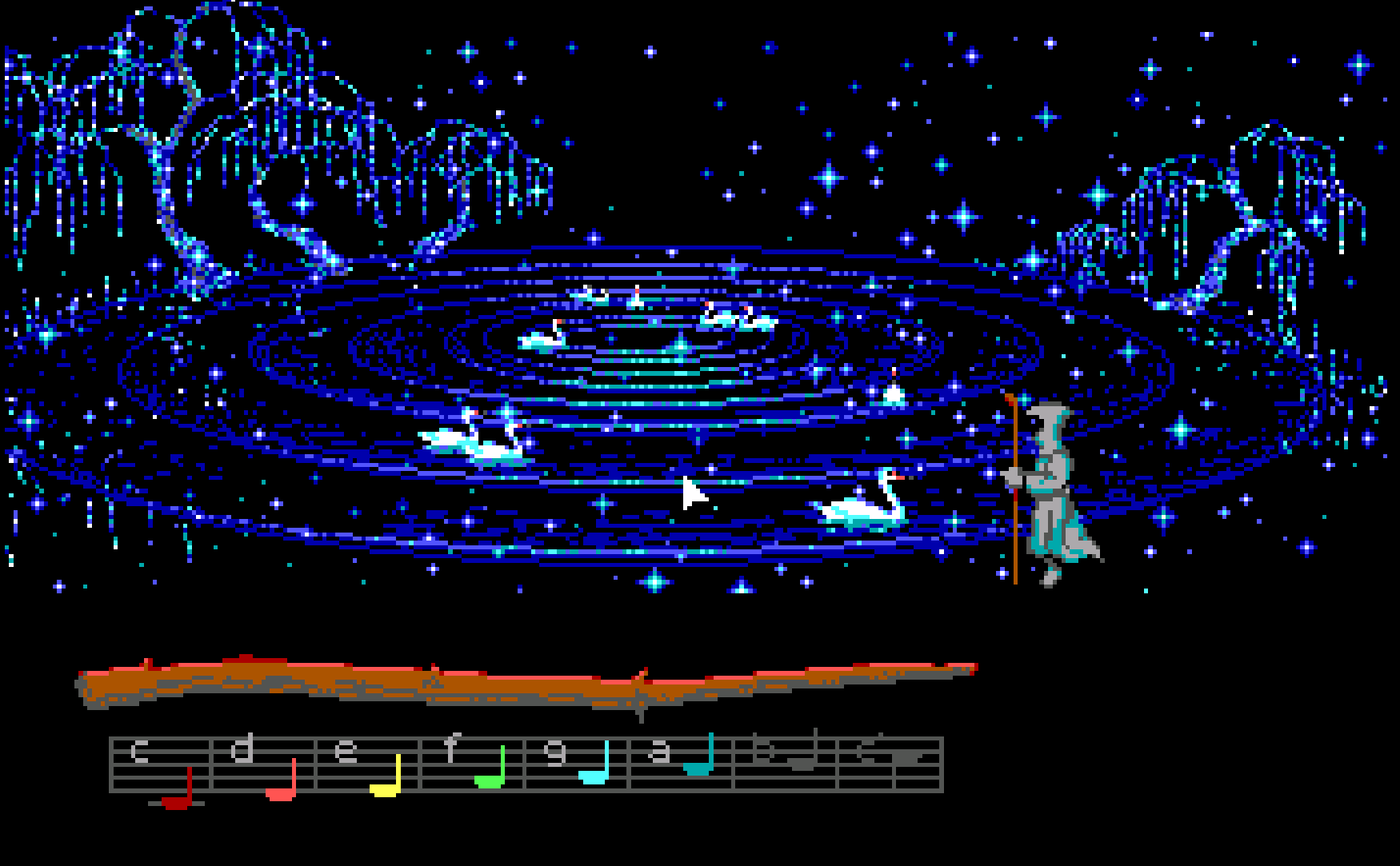 |
||||
| Swimming swan | The cosmic swan pond | ||||
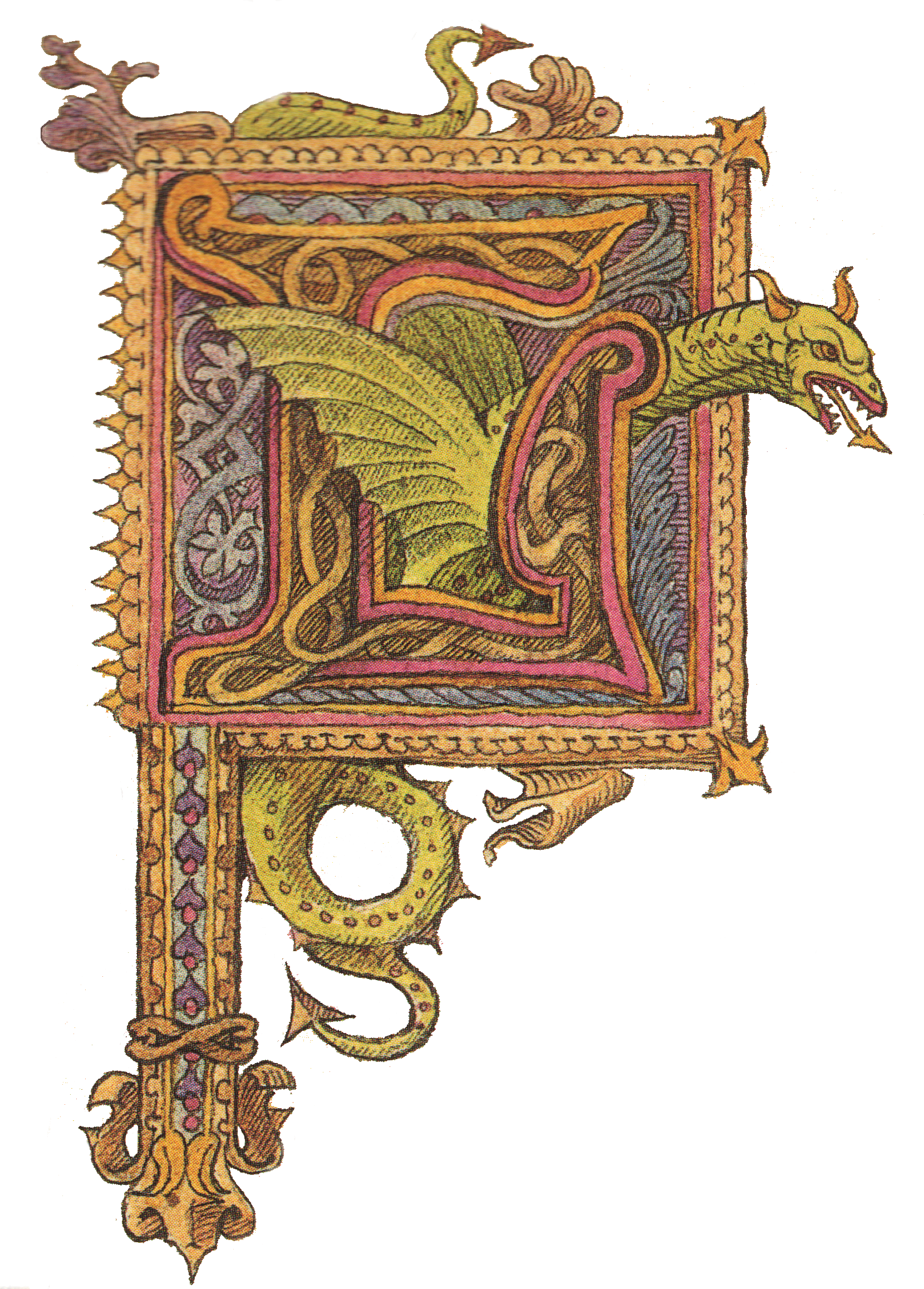 |
 |
||||
| Dragon | The dragon’s lair |
- The back of the box features some information about the setting: The events take place long after “the Second Shadow” in the “Age of Great Guilds” when the universe is steering towards an “unspeakable catastrophe”. The prologue and game reveal that the year is 8021 and that the people living in city-like states according to their skills will eventually have to fight an entity called “Chaos”.
- “Sophisticated score and musical effects”: The music heard in Loom is actually taken from Tchaikovsky's ballet "The Swan Lake".
- "No burdensome typing, mapping, or inventory": Lucasfilm is yet again throwing punches at adventure games made by their competition (namely Sierra).
- Reference to “The Audio Drama–A 30-minute Dolby Stereo® cassette”: Yes, the box comes with an audio tape containing the game’s prologue. It was produced by Sprocket Systems (today Skywalker Sound).6
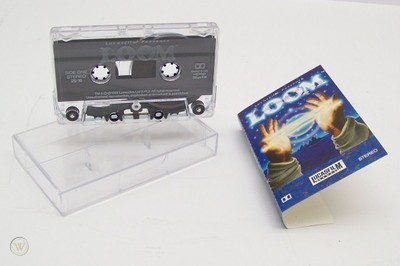 |
|
| Audio tape inside the box |
- Reference to the “Book of Patterns”: Yes, this “illustrated textbook of spellweaving” is also part of the box.
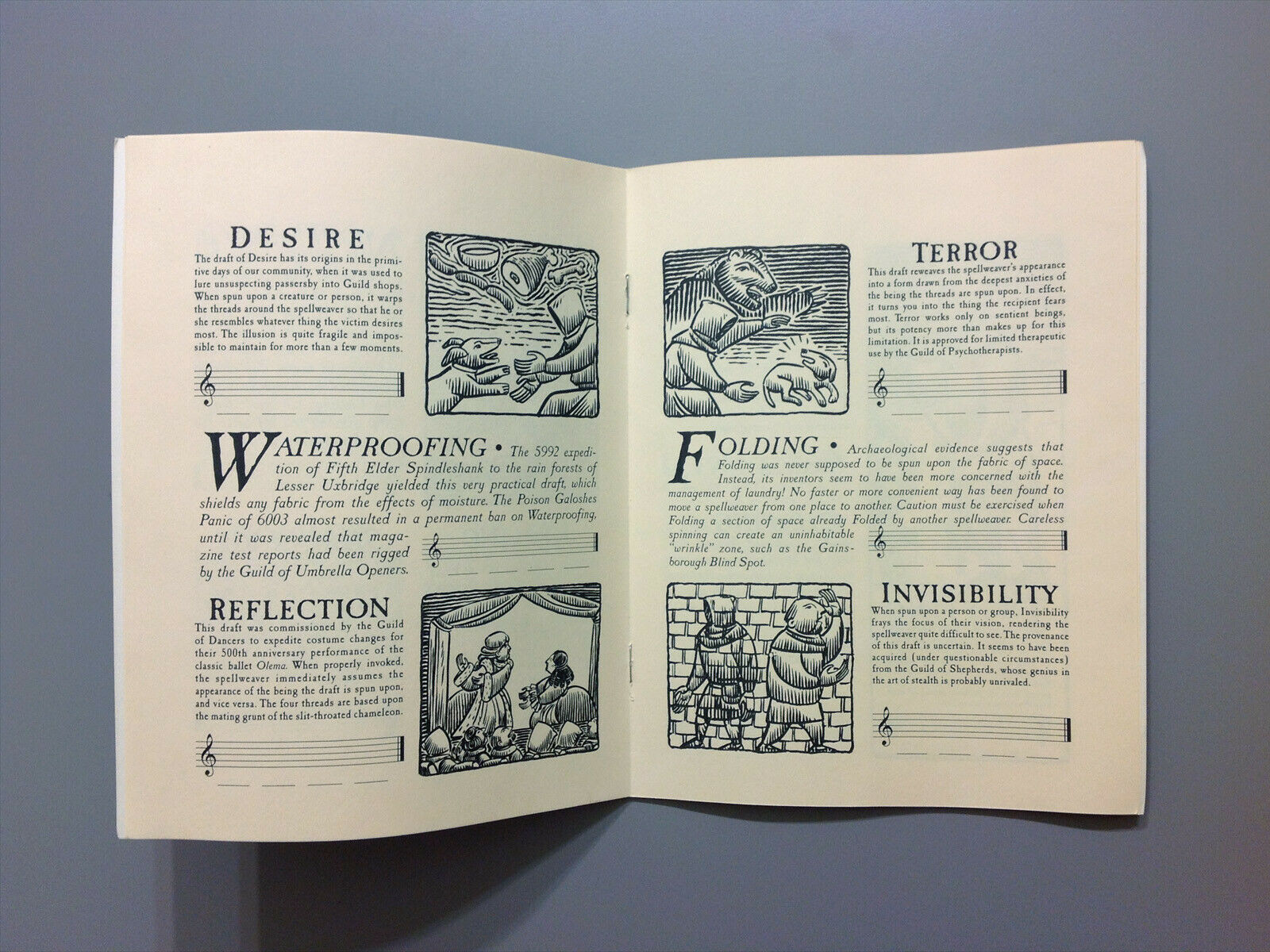 |
|
| Book of Patterns |
- The screenshots are from the EGA 16-color floppy version in standard mode (notes and scale visible) and offer two animalistic play with words:
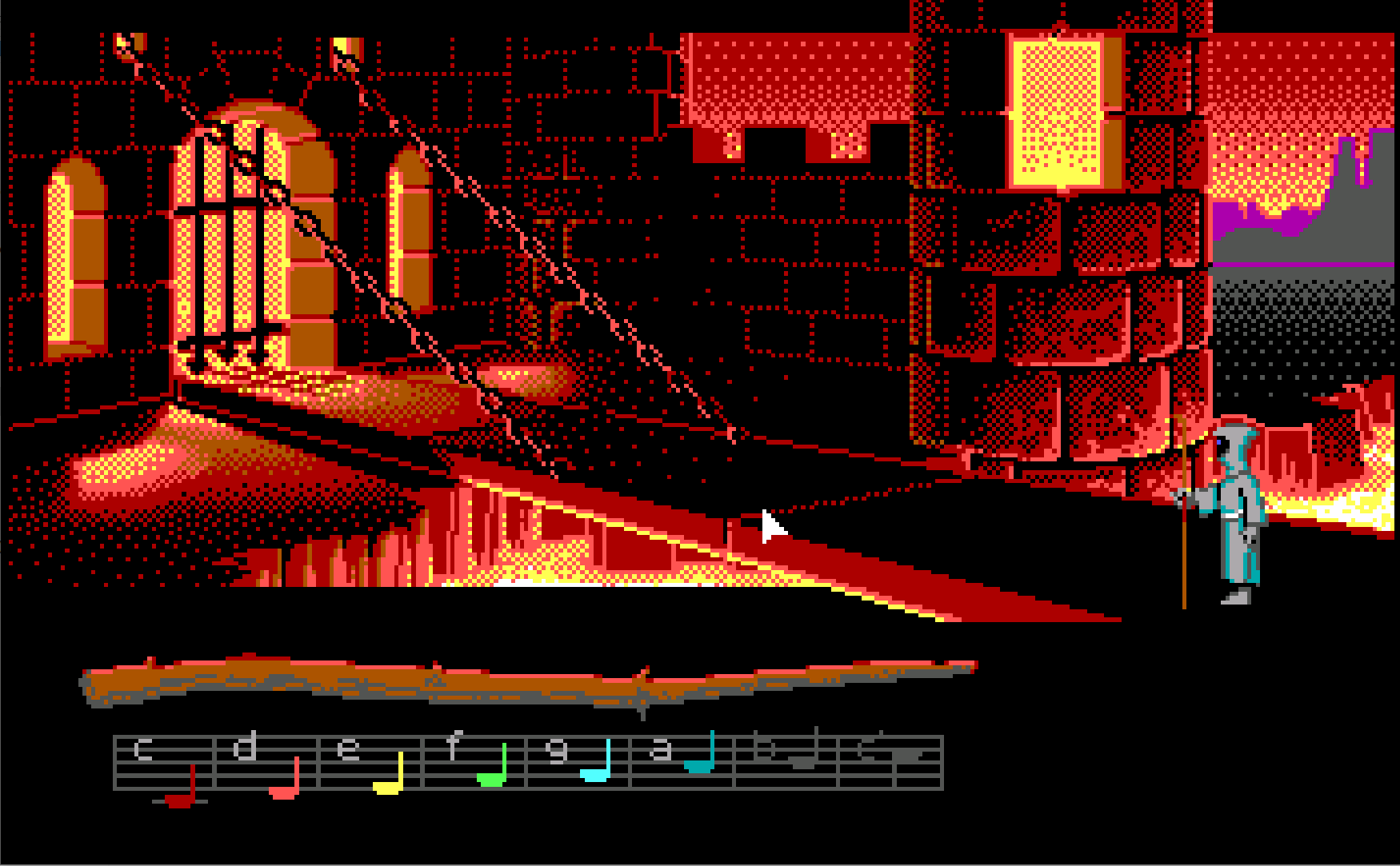 |
 |
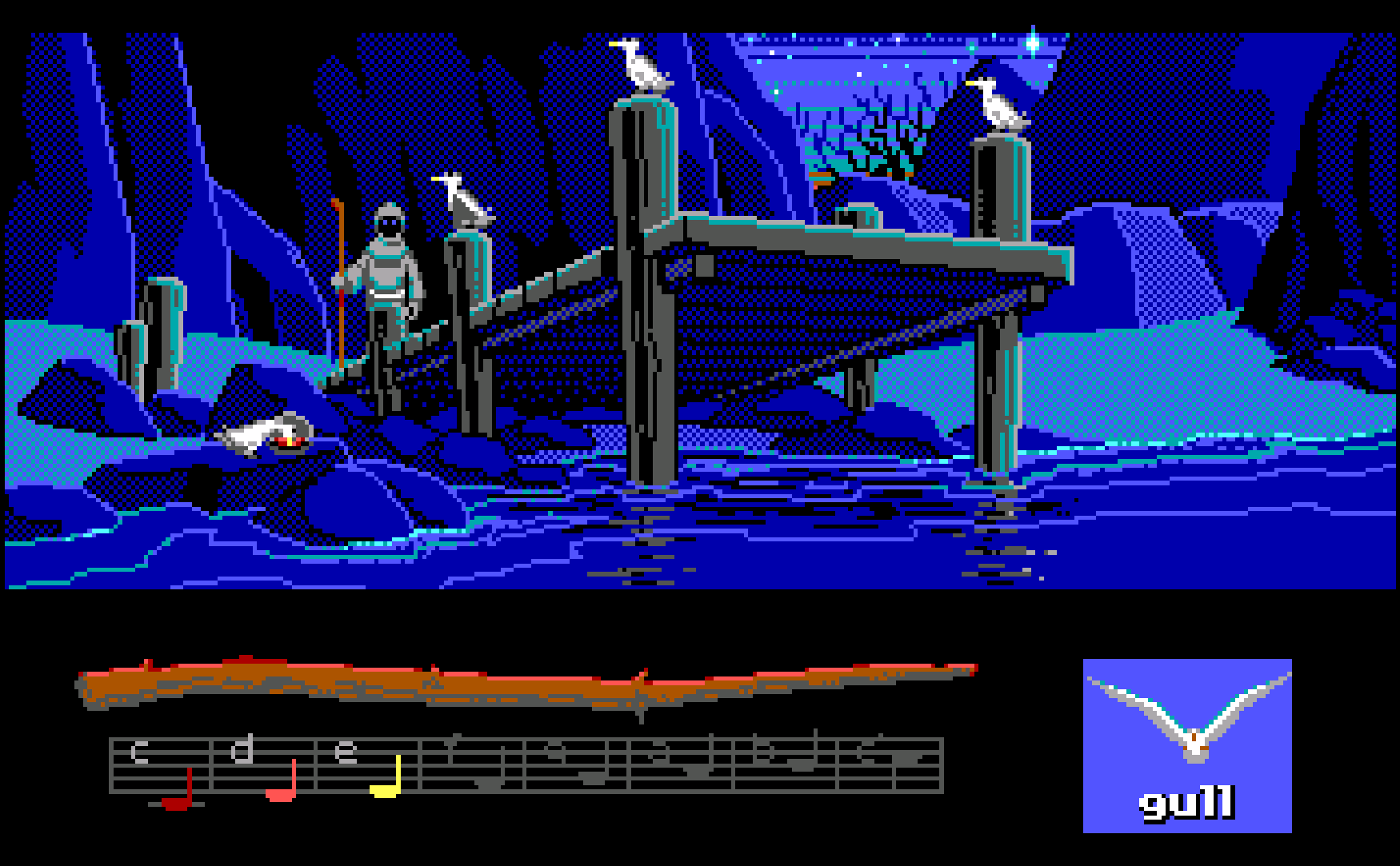 |
|||
| Screenshot 1: Not all of the Guilds welcome strangers. | Screenshot 2: A spellweaver's power is not for the sheepish. |
Screenshot 3: Use your magical skill to influence the gullible. |
- Screenshot 3: Cross-shaped cursor on the box (triangle-shaped cursor in-game), Bobbin has too many high threads, different icon for seagull, "seagull" (box) vs. "gull" (in-game).
- The box was spoofed in the Sierra game Space Quest 4: Roger Wilco and the Time Rippers.7
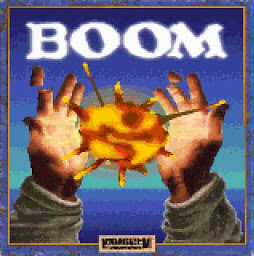 |
|
| Loom box parody in Space Quest 4 (DOS) |
References:
(1) https://www.retroplace.com/en/games/46303--loom. 2020/03/20.
(2) Deneschau, Nicolas. Les mystères de Monkey Island: A l’abordage des pirates ! Third Editions. 2019. P. 273.
(3) The Secret of Monkey Island. Lucasfilm Games. 1990.
(4) The New York Times. https://www.nytimes.com/2011/12/08/arts/design/dugald-stermer-illustrator-and-ramparts-art-director-dies-at-74.html. 2020/03/26.
(5) https://mixnmojo.com/news/Brian-Moriartys-GDC-2015-LOOM-Postmortem. 2020/03/11.
(6) https://en.wikipedia.org/wiki/Skywalker_Sound. 2020/03/12.
(7) Space Quest 4: Roger Wilco and the Time Rippers. Sierra On-Line, Inc. 1991.